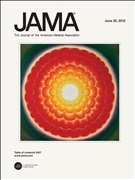
CANNABIS
Synthetic cannabinoid improves neuropathic pain compared to placebo without psychoactive effects
JAMA. 2003 Oct 1;290(13):1757-62.21 patients with chronic neuropathic pain received increasing doses of a synthetic cannabinoid (CT-3) or placebo for 1 week in a random order. The primary outcome was pain reduction, measured by the Visual Analogue Scale (VAS) and Verbal Rating Scale (VRS). Psychoactive effects were also assessed by the Trail-Making Test (TMT) and Addiction Research Center Inventory-Marijuana (ARCI-M), and adverse events (AEs) were recorded. Results indicate that CT-3 significantly reduced pain compared to placebo, but was also associated with an increased rate of non-major adverse events. The treatments were comparable with regards to ARCI-M and TMT scores, as well as vital signs, weight, and temperature.
Unlock the full ACE Report
You have access to {0} free articles per month.Click below to unlock and view this {1}
Unlock NowCritical appraisals of the latest, high-impact randomized controlled trials and systematic reviews in orthopaedics
Access to OrthoEvidence podcast content, including collaborations with the Journal of Bone and Joint Surgery, interviews with internationally recognized surgeons, and roundtable discussions on orthopaedic news and topics
Subscription to The Pulse, a twice-weekly evidence-based newsletter designed to help you make better clinical decisions
Exclusive access to original content articles, including in-house systematic reviews, and articles on health research methods and hot orthopaedic topics
Or upgrade today and gain access to all OrthoEvidence content for just $1.99 per week.
Already have an account? Log in


Subscribe to "The Pulse"
Evidence-Based Orthopaedics direct to your inbox.
{0} of {1} free articles
Become an OrthoEvidence Premium Member. Expand your perspective with high-quality evidence.
Upgrade Now












































































